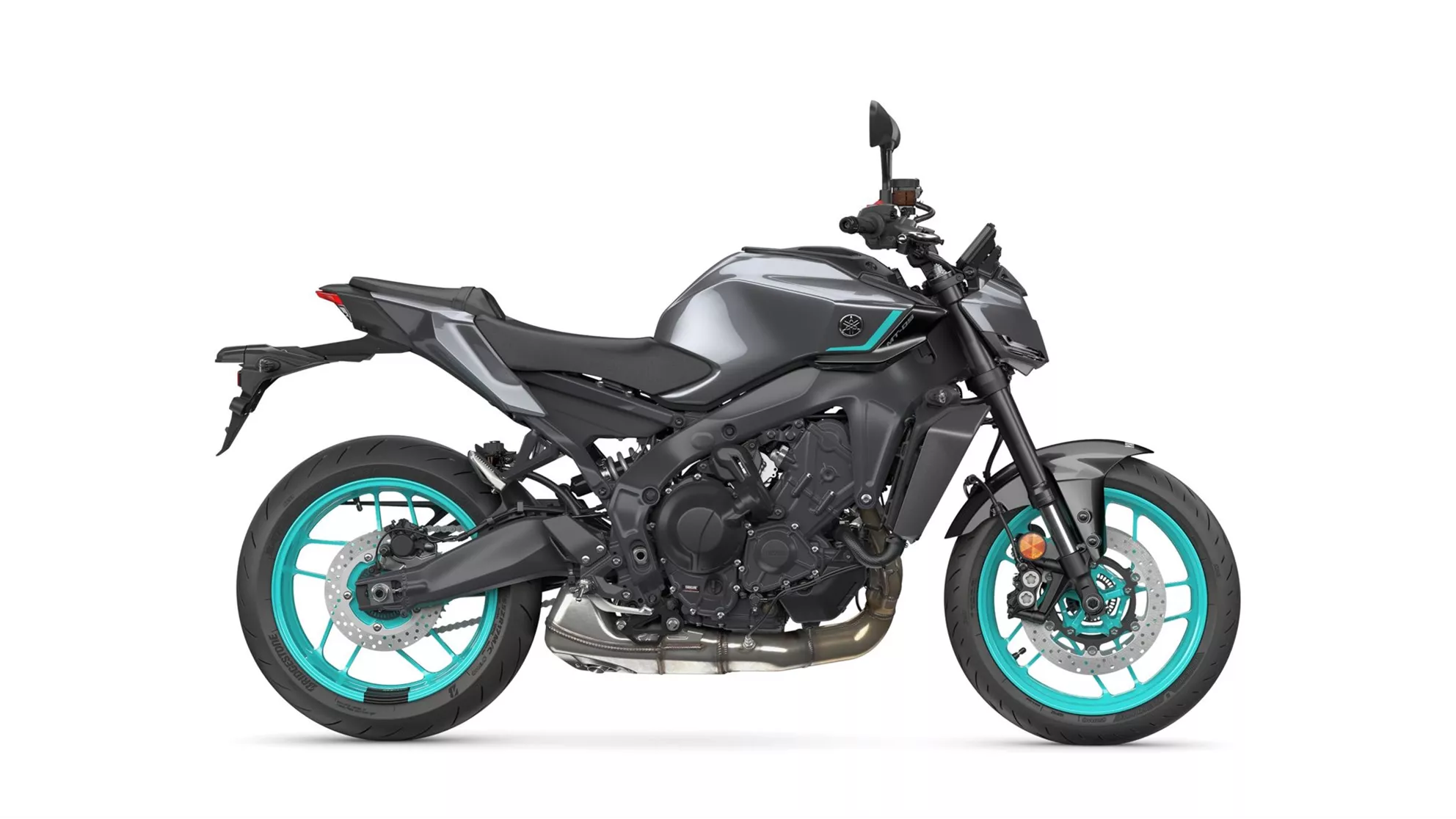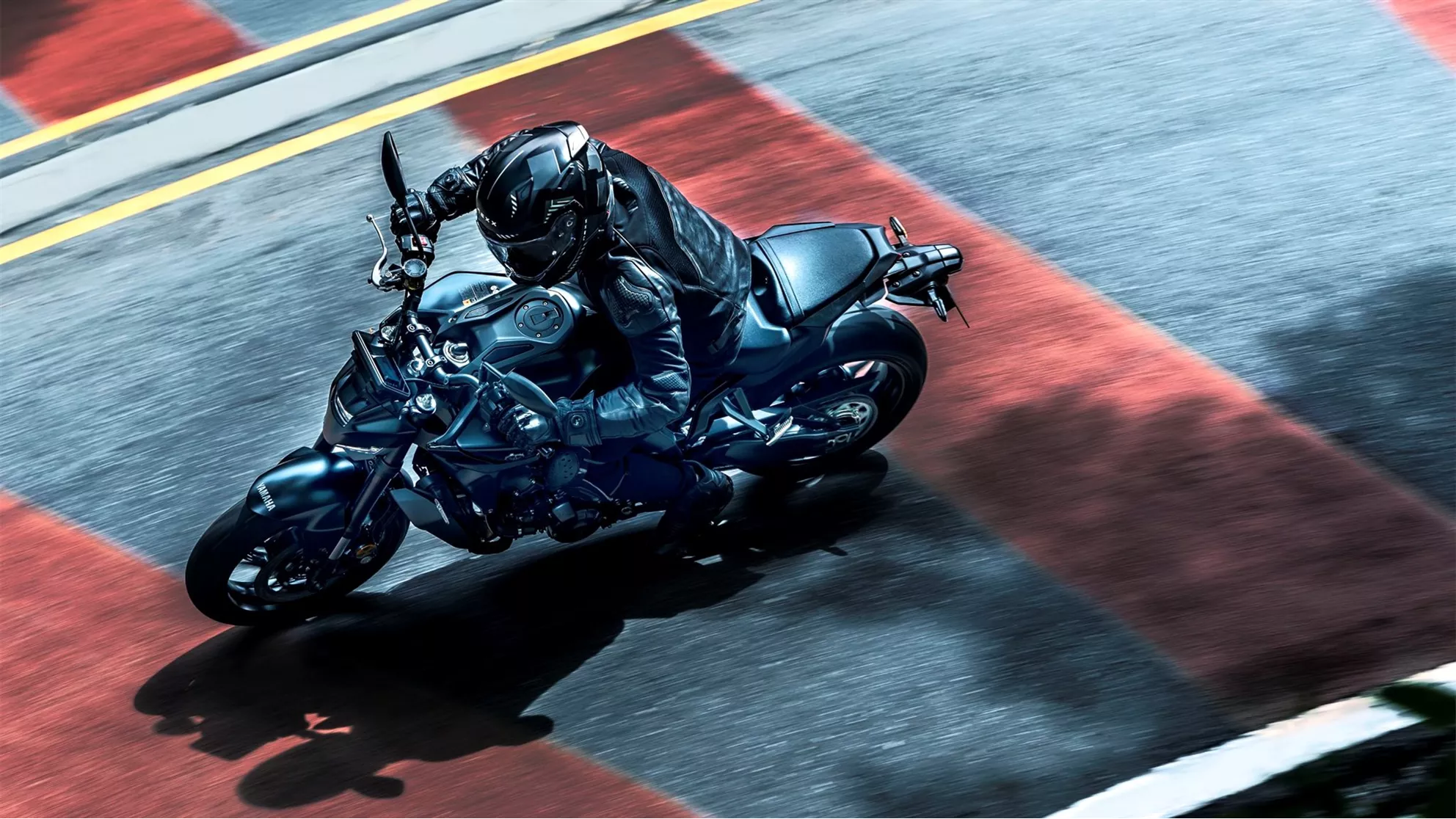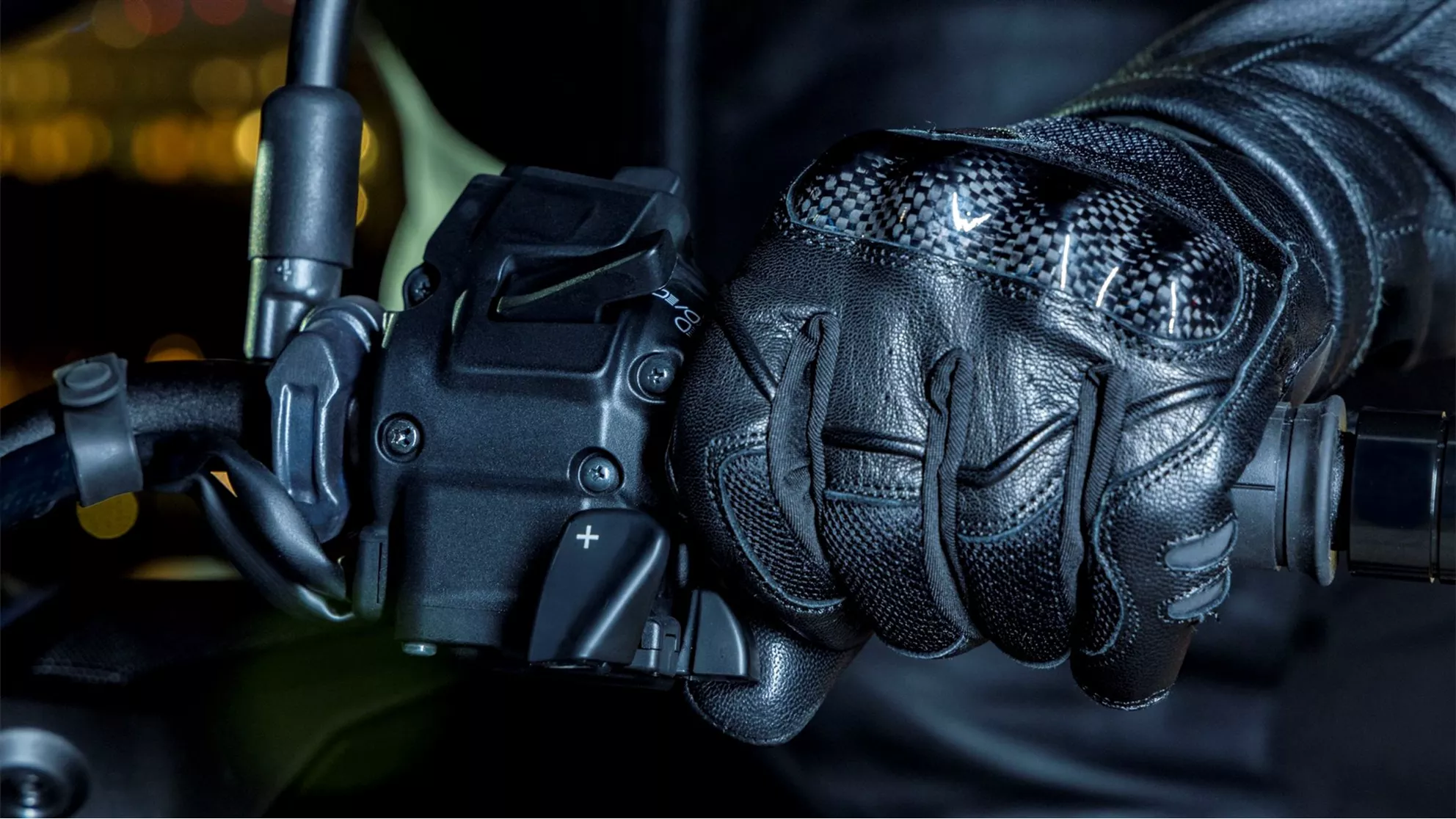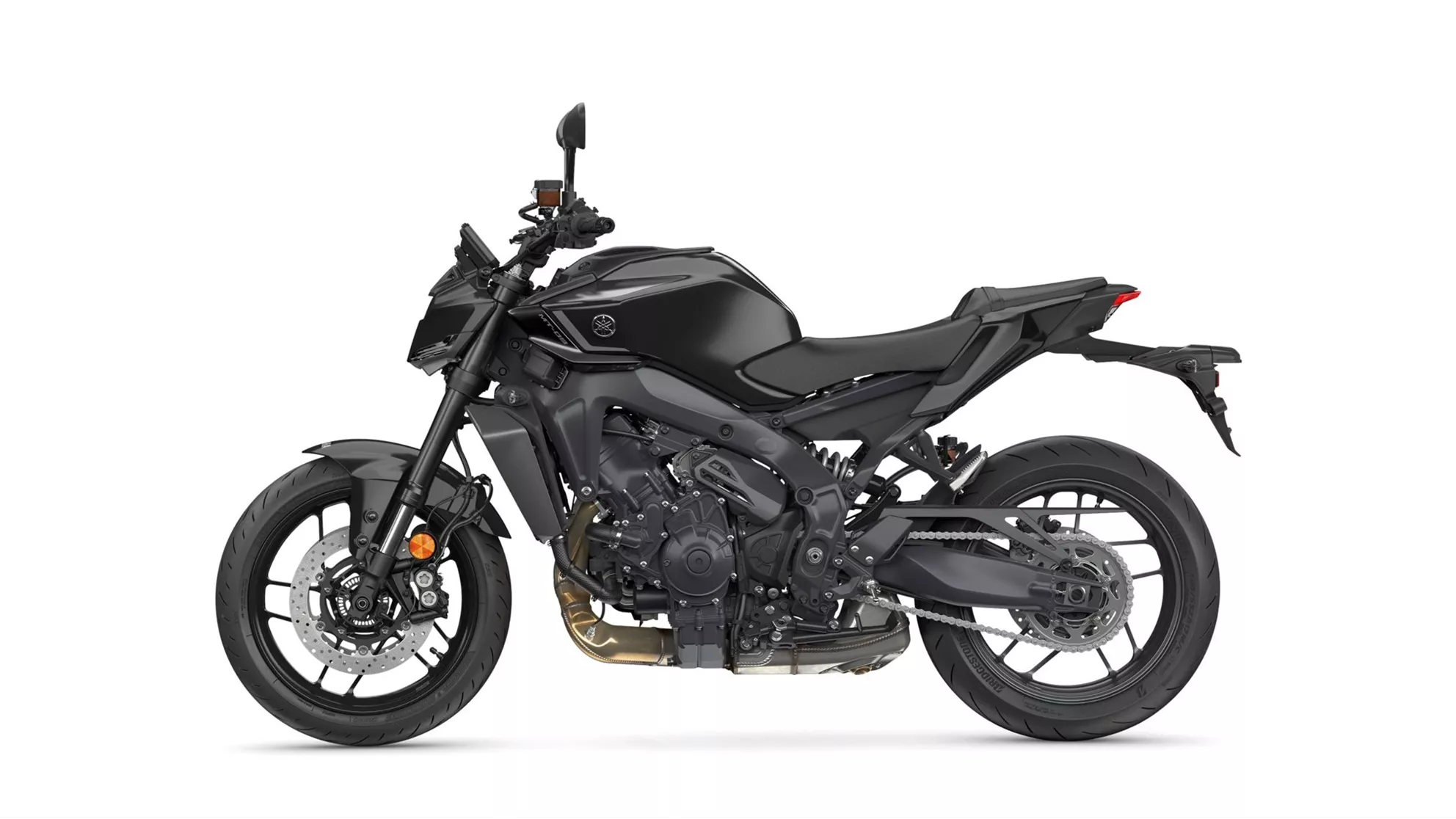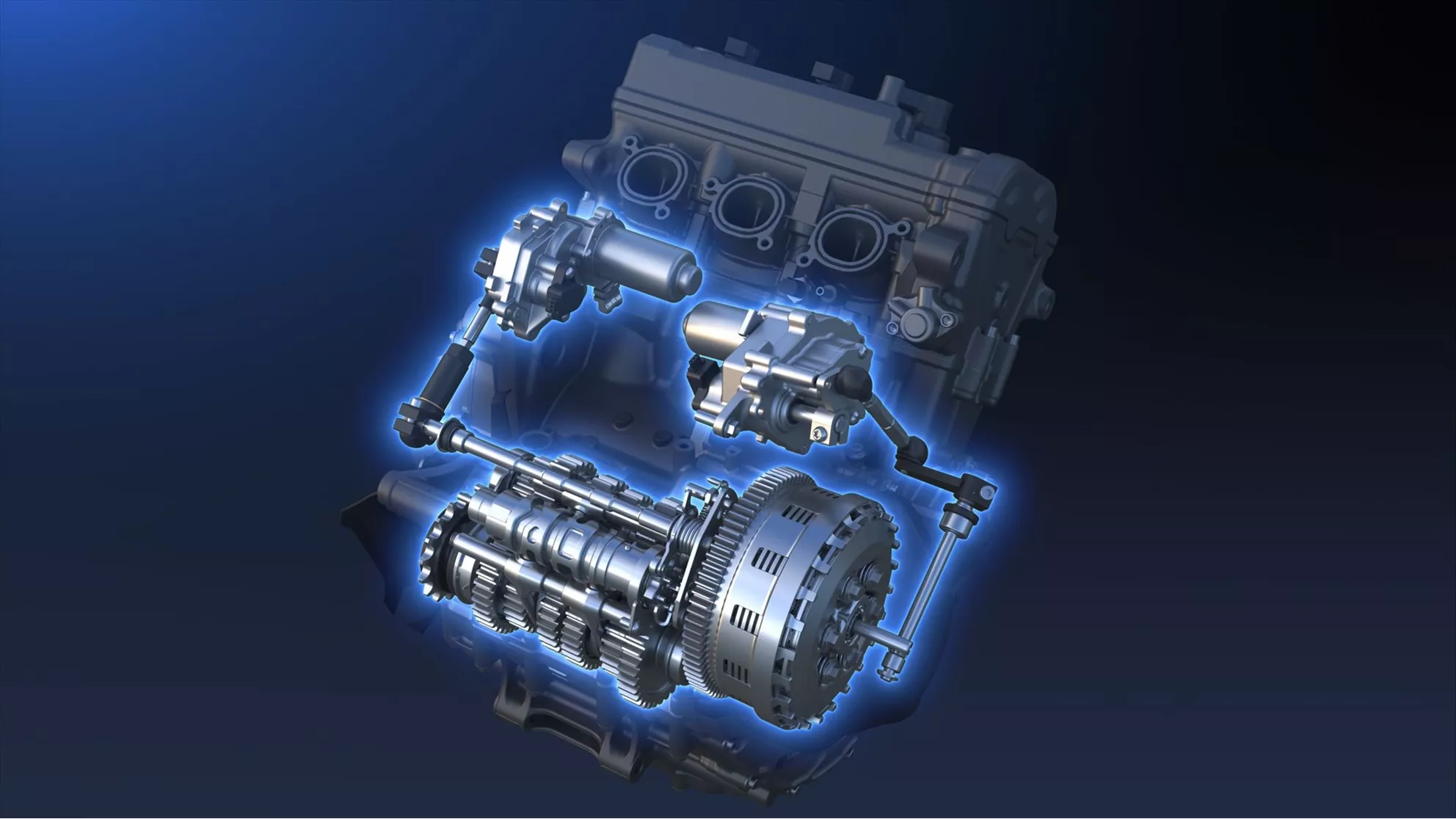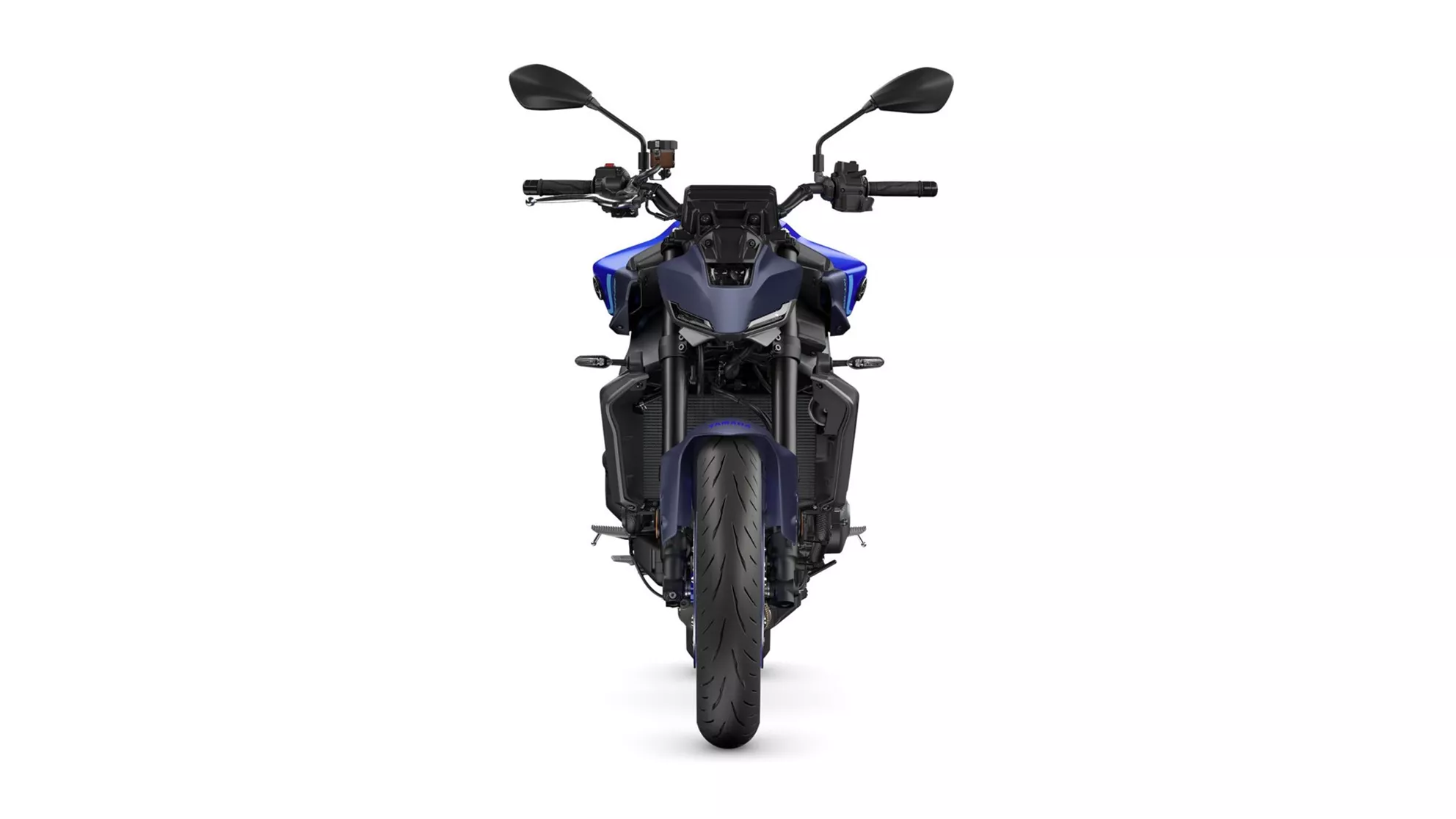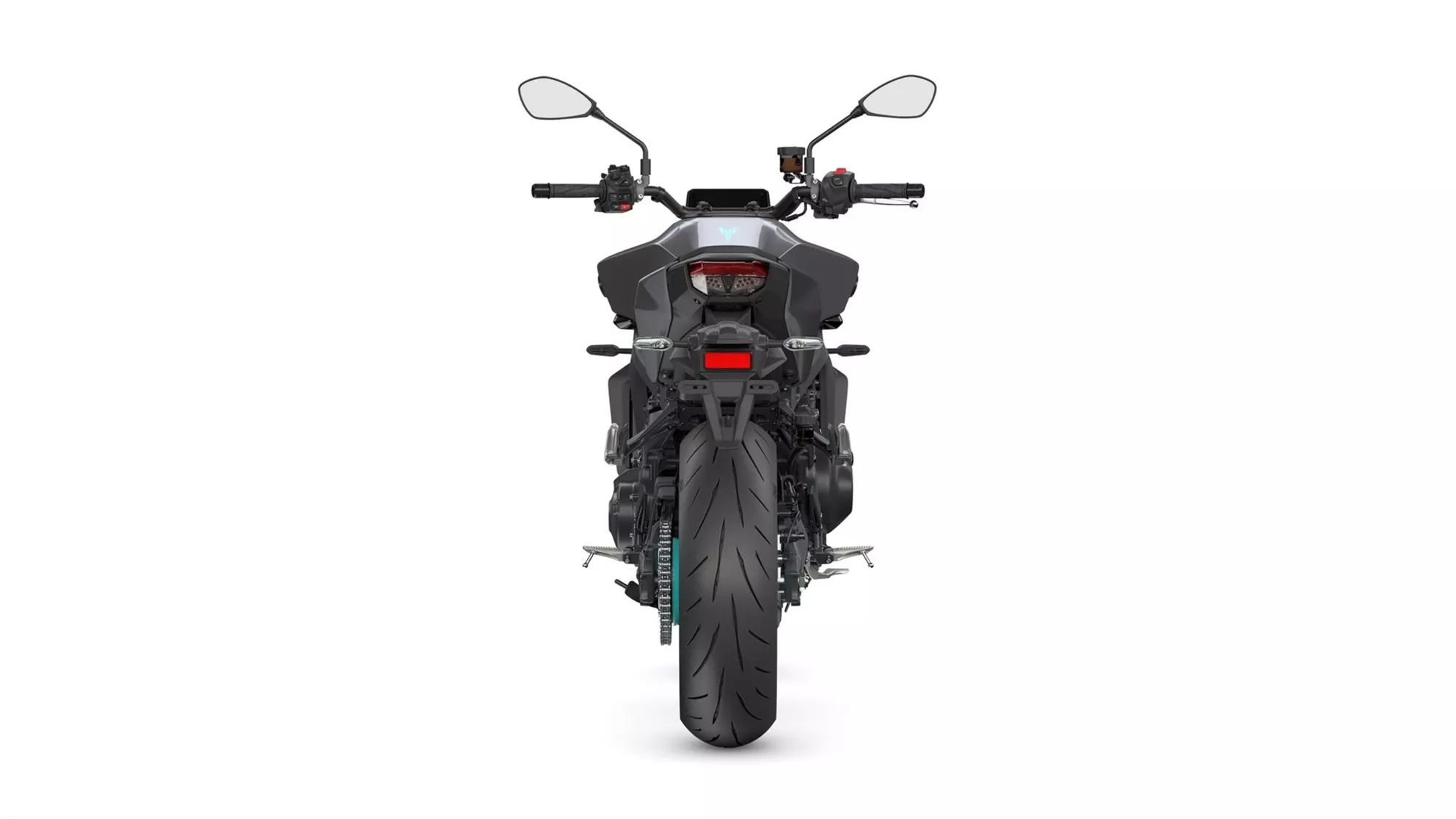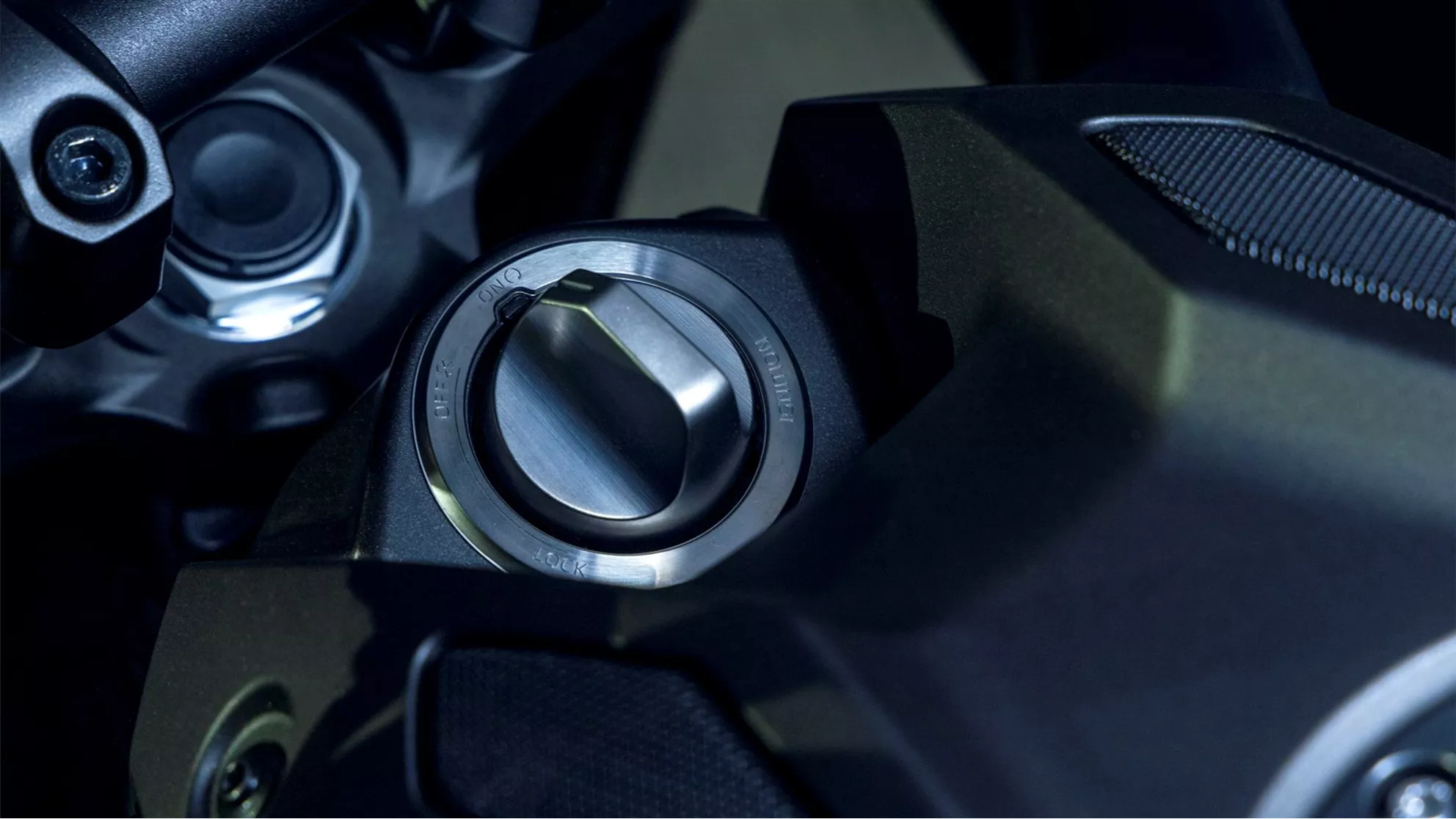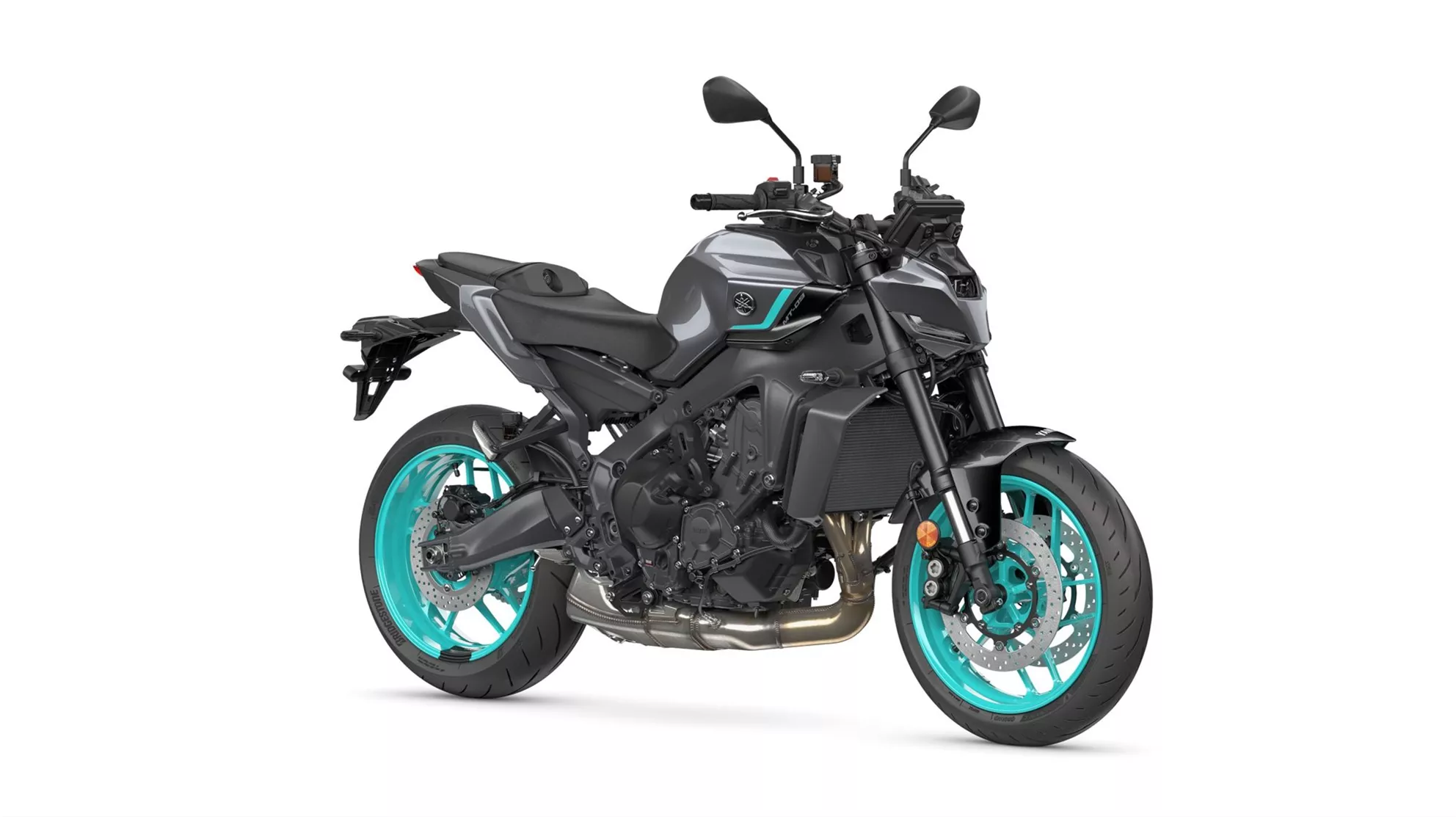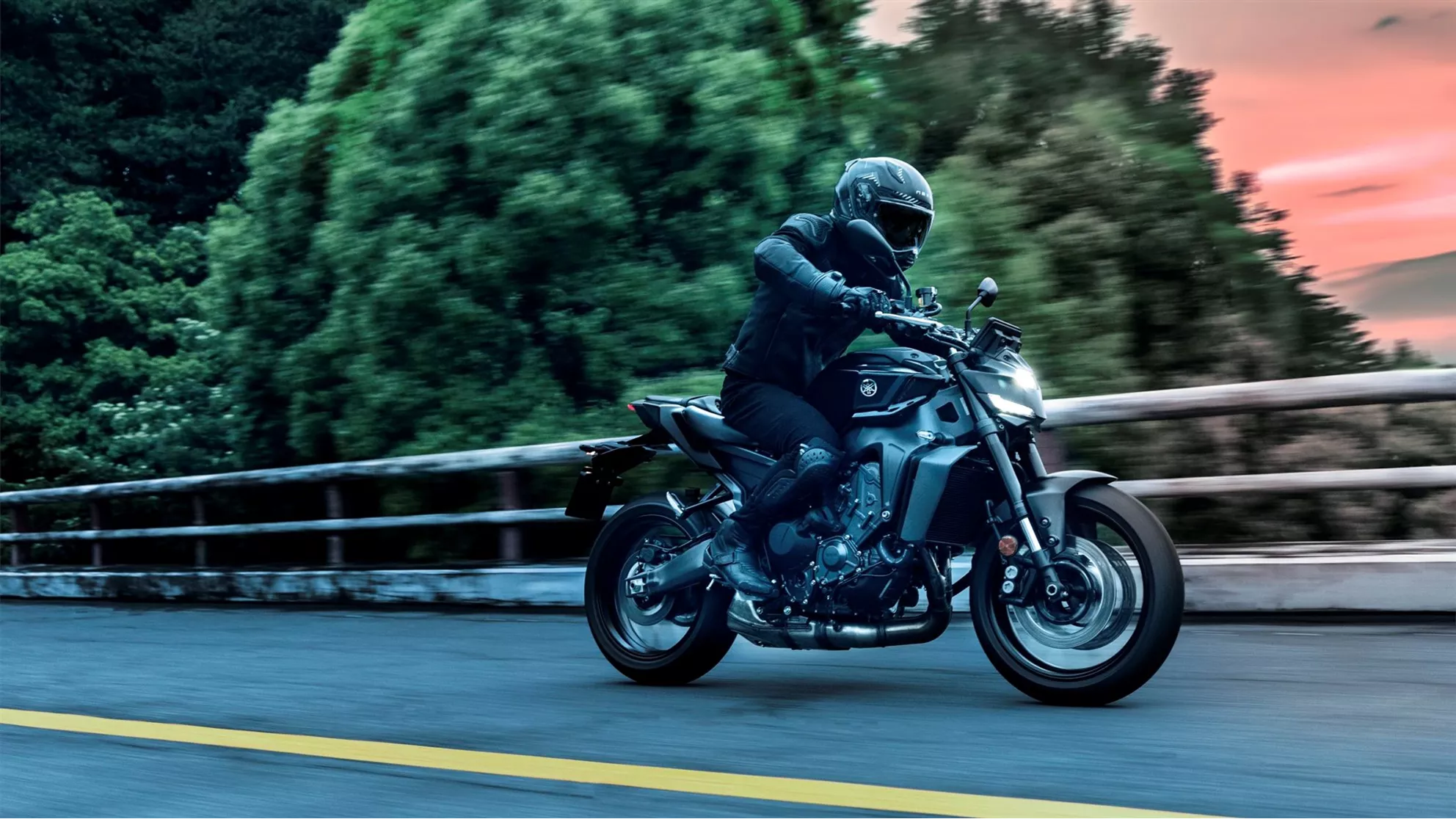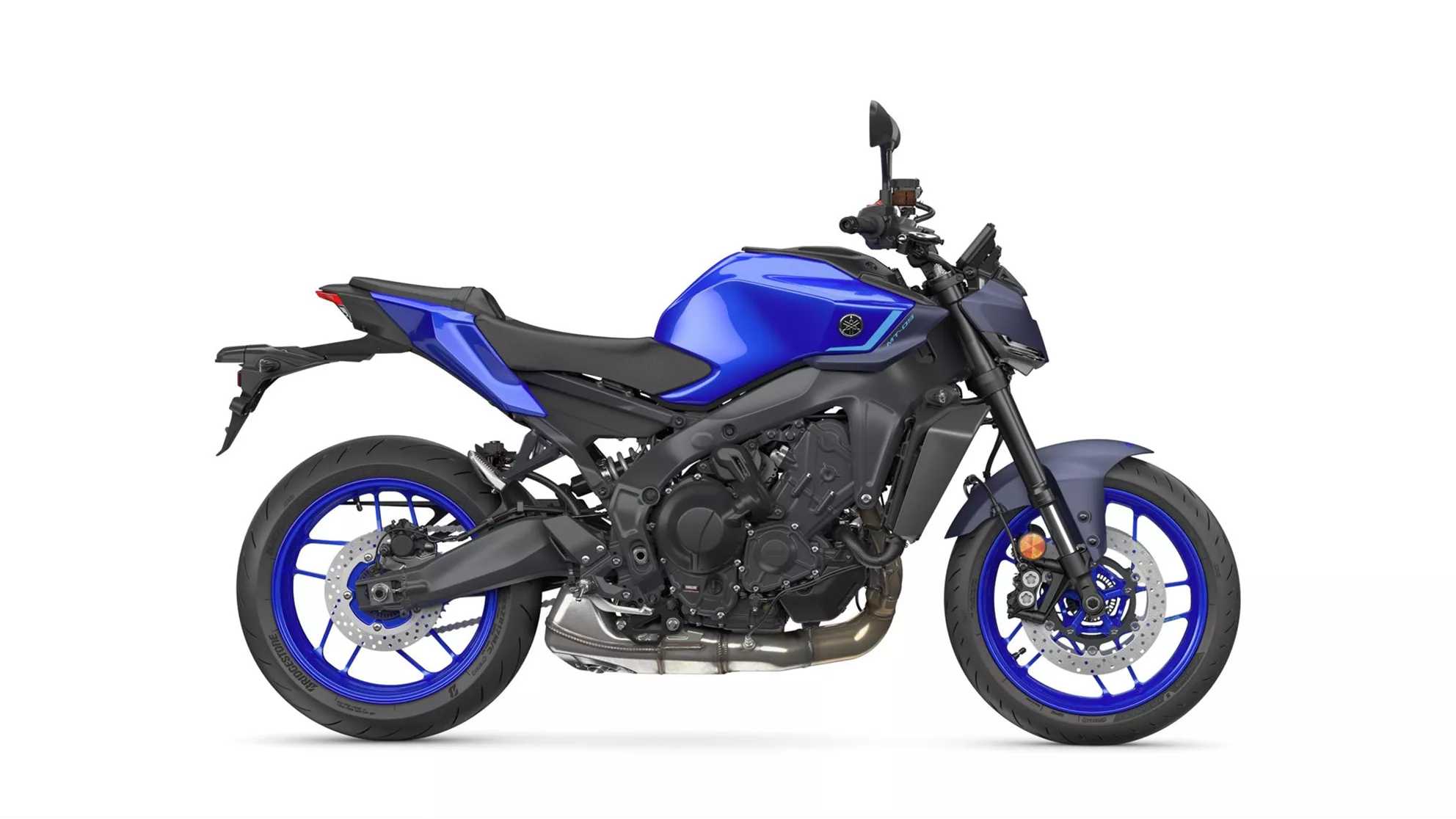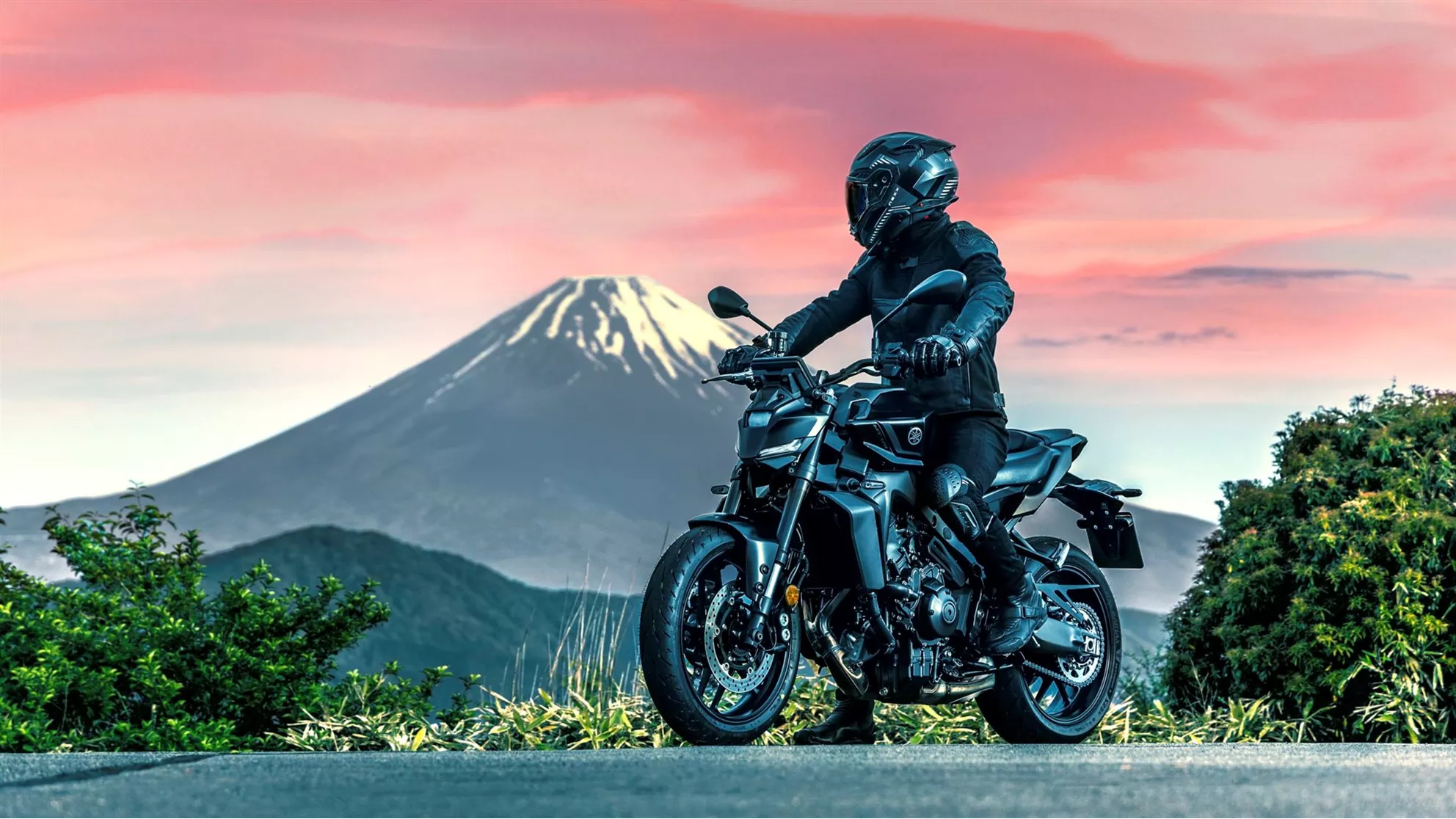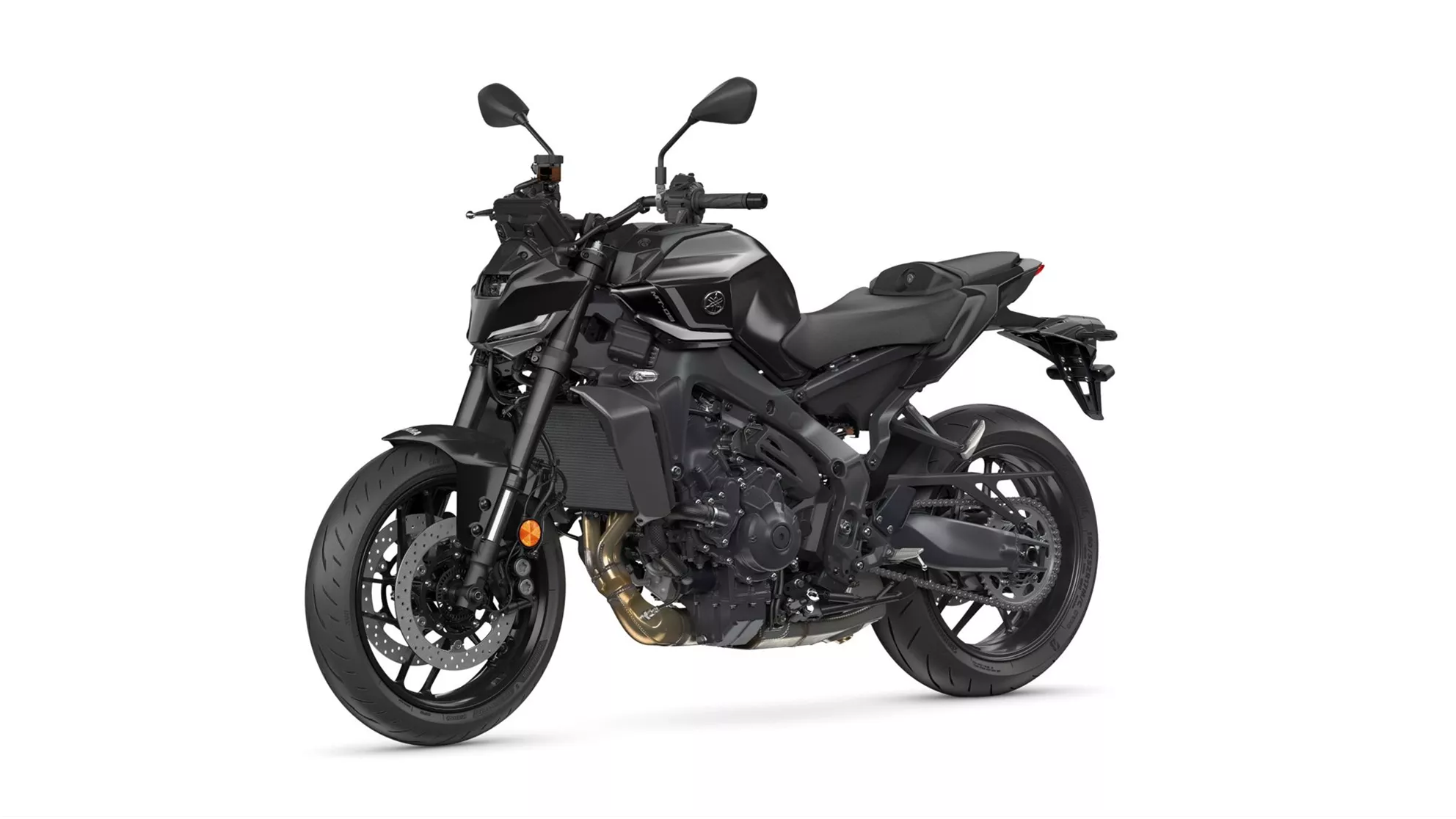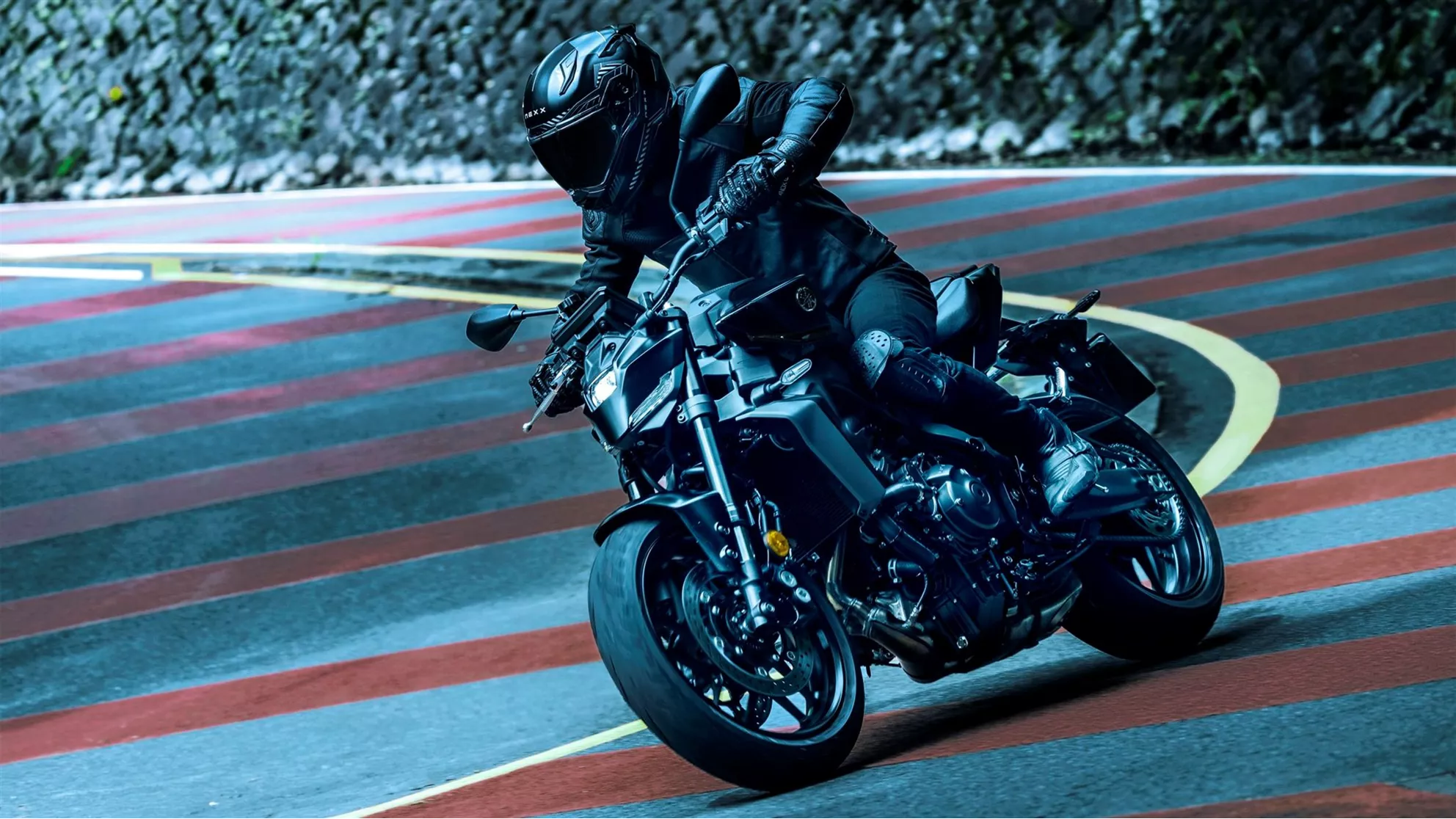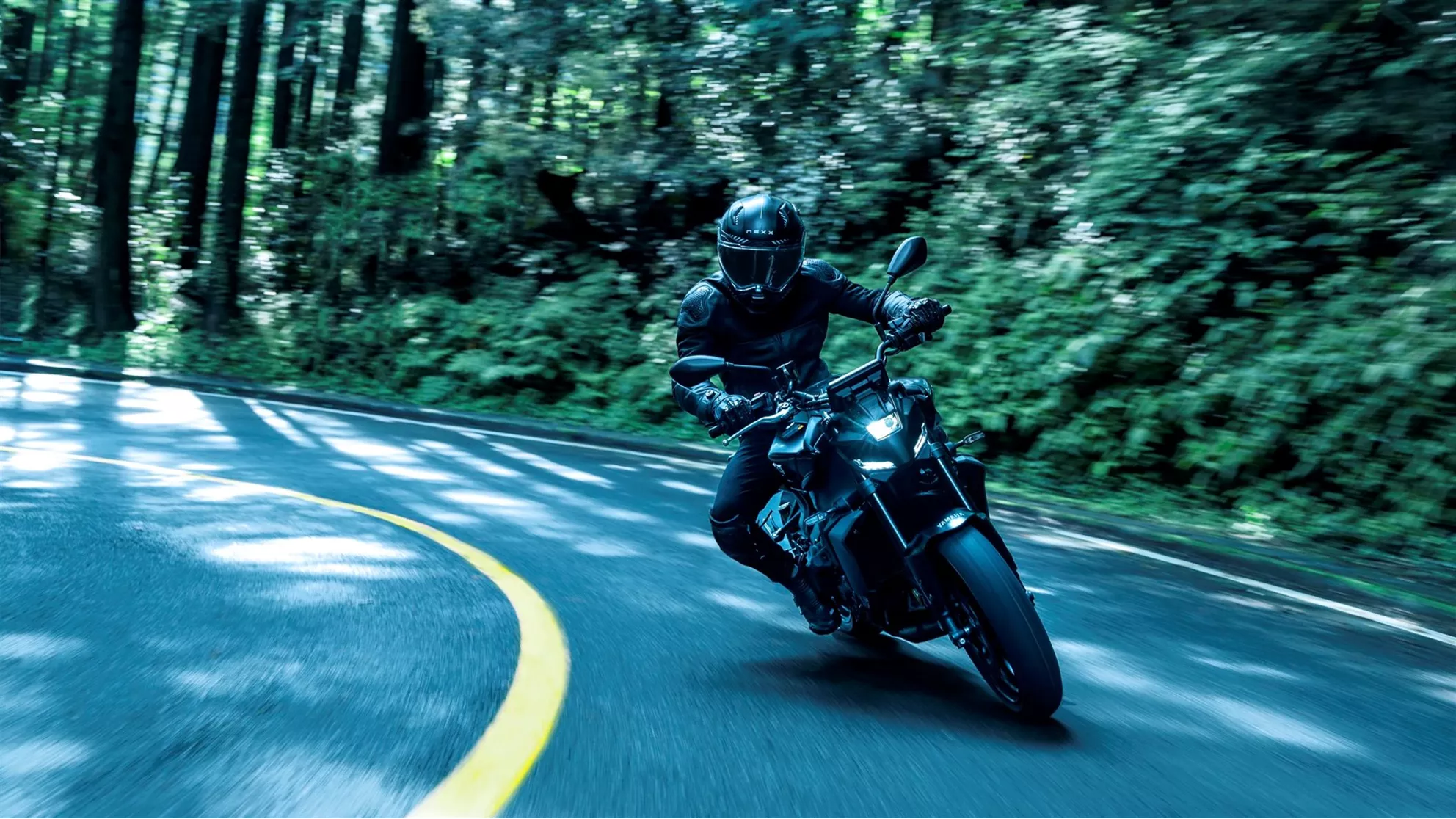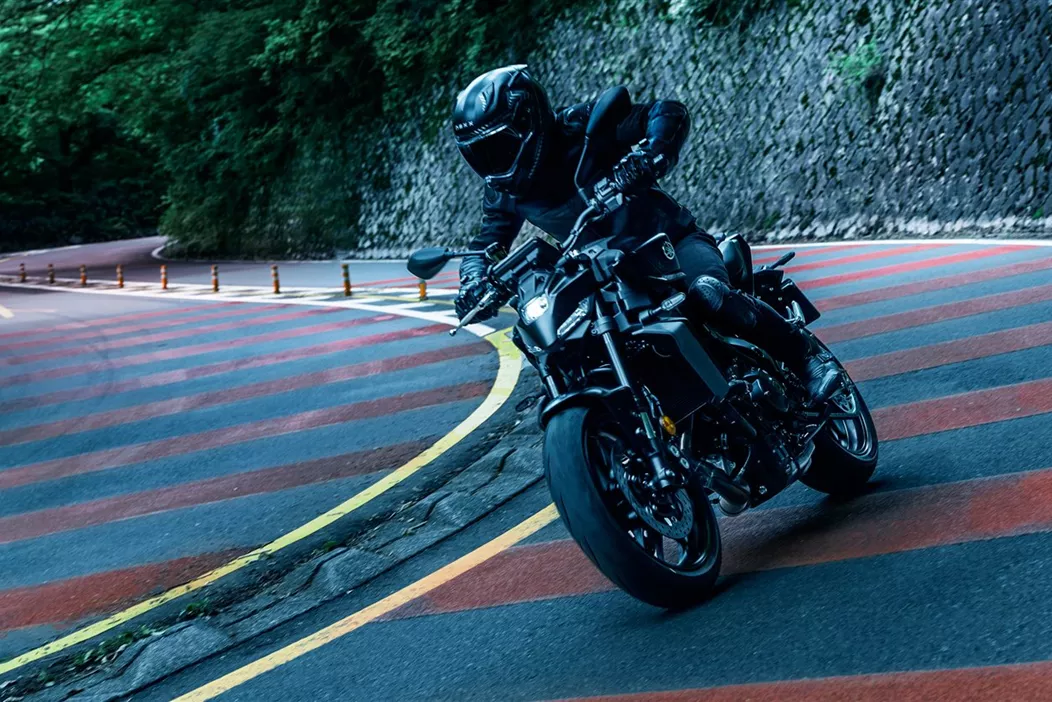Automatic transmissions are currently experiencing a boom in the motorcycle industry. The new technologies are met with as much enthusiasm as skepticism. Opinions are divided: while some see exciting features in the increasingly "smarter" motorcycles, others feel overwhelmed and believe that a motorcycle consists of two wheels, a frame, and an engine. Both sides are understandable. However, Yamaha's approach to an "automatic" version for motorcycles is significantly different. Therefore, it is worth taking a closer look behind the scenes of the new Y-AMT (Yamaha Automated Manual Transmission).
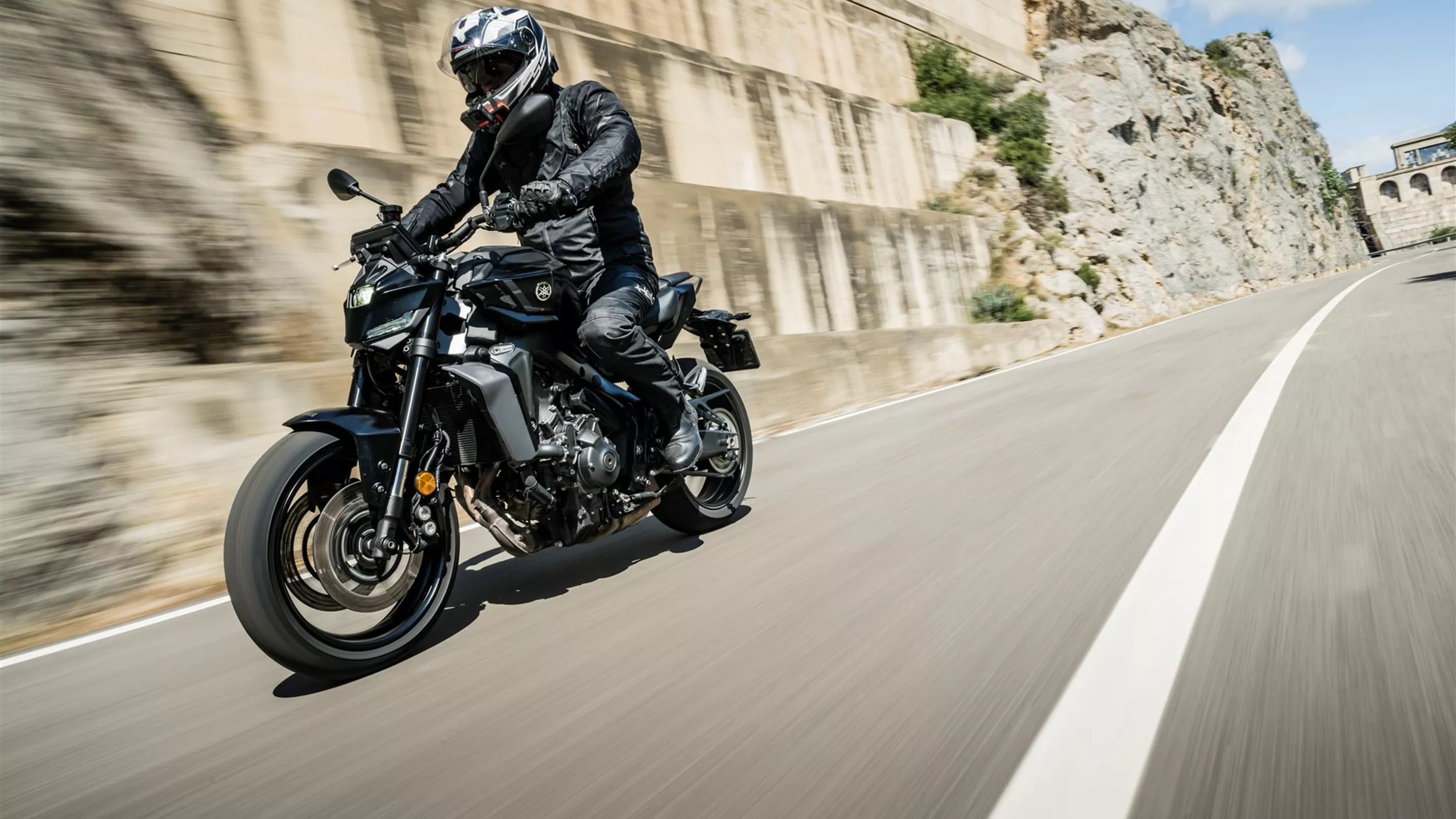
Yamaha's Automated Manual Transmission (Y-AMT) - Test Report
Yamaha showcased their new technology on the MT-09
We had the opportunity to test the new technology in the foothills of the Pyrenees. The result was more surprising than expected!
&width=72&height=72&bgcolor=rgba_39_42_44_0&mode=crop)
FunkyFrankee
published on 13/09/2024
Y-AMT from Yamaha in Overview. What's actually behind it?
The Yamaha Y-AMT (Automated Manual Transmission) is an innovative shifting technology that combines the convenience of an automatic transmission with the control of a manual gearbox. Unlike traditional automatic transmissions that use a torque converter, the Y-AMT remains technically a manual gearbox. The difference lies in the fact that the clutch and shifting are automatically controlled - so you don't have to engage the clutch or manually change gears.
Yamaha already has extensive experience with automatic transmissions. Compared to the older YCCS technology (Yamaha Chip Controlled Shift) from 2006, which also aimed to simplify manual shifting, the Y-AMT is significantly more advanced. While the YCCS system was still a kind of semi-automatic shifting system that sometimes responded sluggishly and did not always deliver smooth shifts, the Y-AMT works much faster and more fluidly. The system precisely selects the appropriate gear and ensures smooth transitions - without any delay or jerking.
The Y-AMT makes riding especially in challenging terrain or urban traffic more pleasant, as you can fully concentrate on the road without constantly having to shift. At the same time, you always have the option to manually take over the gear selection if you want to take control yourself.
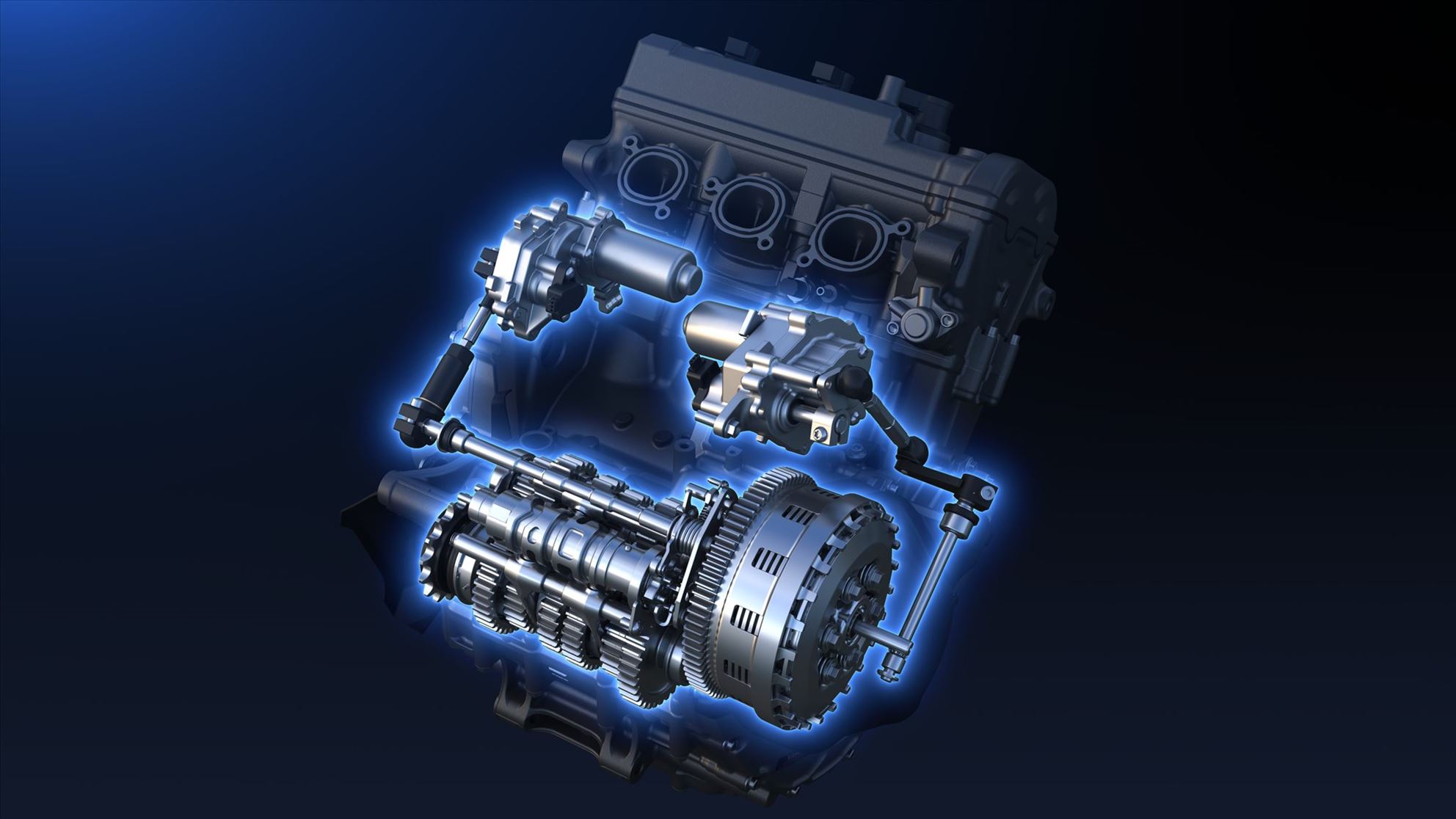
Yamaha's automated manual transmission, or Y-AMT for short
The different modes of the Y-AMT
The system operates with two different approaches: the "Drive (D)" mode and the "Drive Plus (D+)" mode, with the D+ offering a slightly sportier riding experience. In both modes, the bike shifts completely autonomously, making it perfect for daily city traffic or commuting in congestion. The difference between "D" and "D+" is minimal; in "D" mode, the gears are shifted up a bit faster, allowing for a smoother ride. These two automatic modes are referred to in the Y-AMT system as "AT" (Automatic Transmission).
On the right handlebar, there is a switch to toggle between AT and MT. MT stands for "Manual Transmission" and requires the rider to manually control the upshifting and downshifting. At least when it comes to upshifting - because even in MT mode, the system intervenes as soon as the RPM drops too low. In short: if the engine speed drops so low that the engine stalls, the Y-AMT automatically downshifts. This feature is particularly helpful for beginners or in stressful situations.
In MT mode, various modes adapted to the riding situation are also available, as known from other models: "Street," "Sport," "Rain," and two individually customizable "Custom" modes.
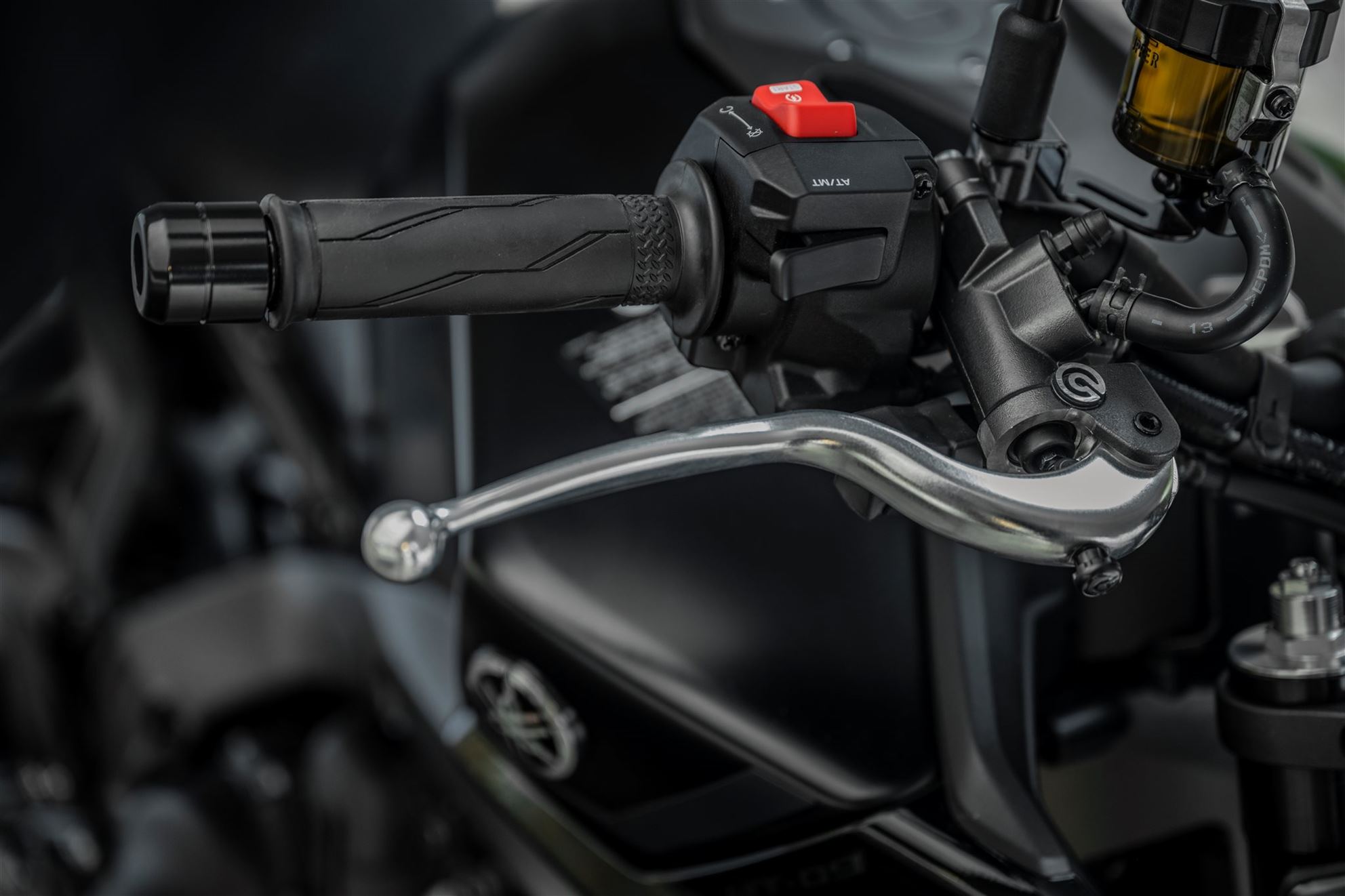
'Using the AT/MT switch, you can choose between fully automated gear shifts or manual shifting.'
Riding Impression Automatic Transmission (AT) of the Y-AMT
The automatic transmission is particularly impressive with its rapid and smooth acceleration at traffic lights or stop signs. In an urban environment, the shift assistant works excellently and also allows rides at very low speeds, with the clutch independently regulating the correct dosage. While riding in the city, you hardly notice a significant difference between the "D" and "D+" modes.
However, once you leave the city and tackle the first twisty country roads, you quickly realize that the "AT" mode reaches its limits. The automatic transmission handles relaxed rides effortlessly, especially in "D" mode, where upshifting occurs very early. During quick corner changes, however, you wish that the system would downshift faster when abruptly letting off the throttle or lightly tapping the rear brake. Often, the gearbox remains in a higher gear and only shifts in the middle of the corner - either up or down, depending on whether you are accelerating or braking. This requires additional input from the rider, either through the brakes or by balancing the weight, as the necessary torque is lacking.
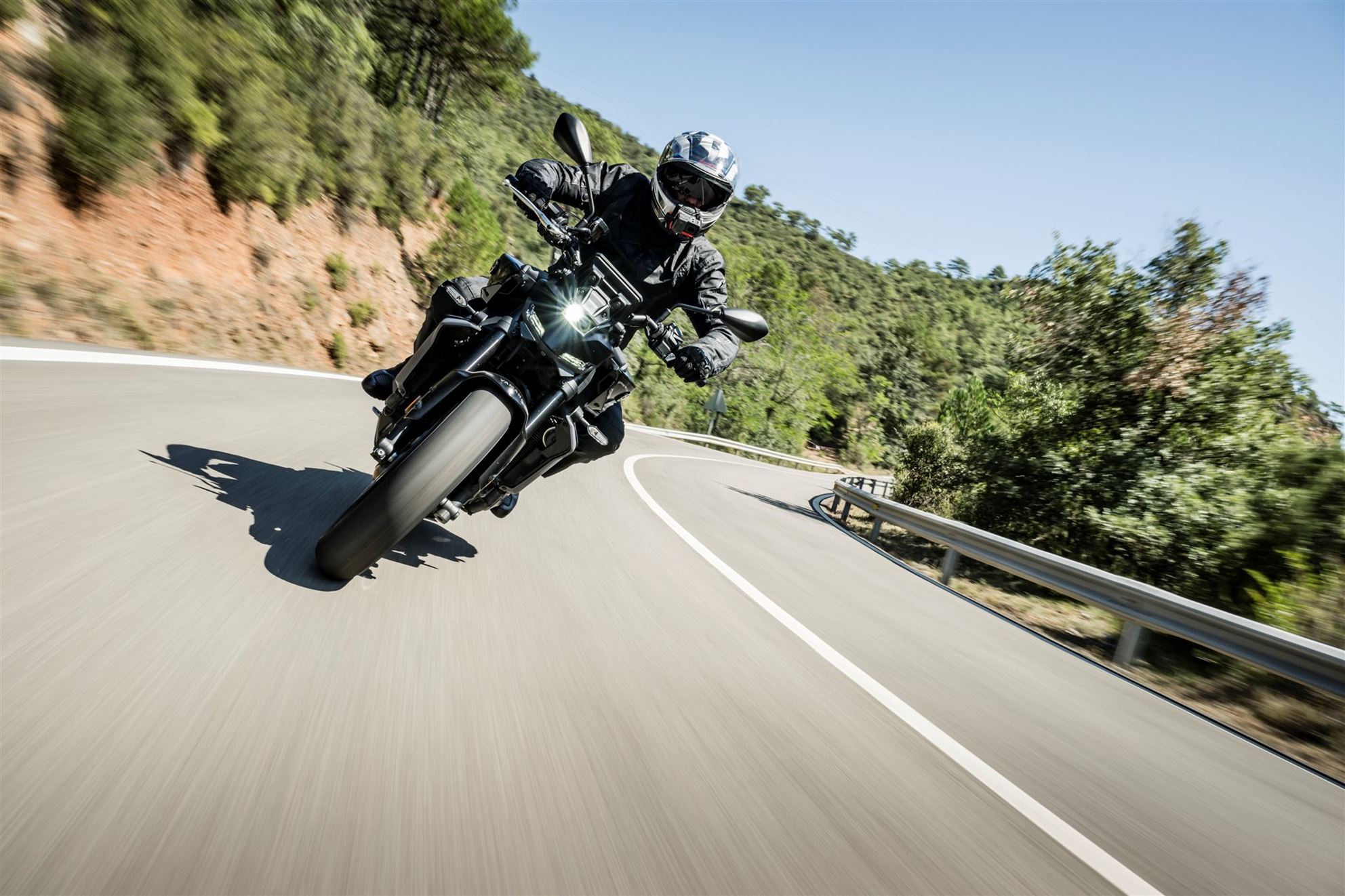
The automated shift mode invites you to relax on country roads.
Functionality and Riding Impression Manual Transmission (MT) of the Y-AMT
During the presentation, it quickly became clear that the MT mode was particularly dear to the developers' hearts. That's why the Y-AMT technology was also introduced in the Yamaha MT-09 - a motorcycle known for riding pleasure, sportiness, and strong torque.
During our 300-kilometer test ride, which included many fast curves and tight passages, we had ample opportunity to test the MT mode. Since the Y-AMT technology is based on an automated transmission, the gears are still shifted as with fully manual motorcycles. In MT mode, this results in a shifting behavior similar to a quickshifter when the gears are engaged. The difference from a conventional manual MT-09 is that now the shifting is done via the "Seesaw Switch" on the handlebar instead of with the foot. Additionally, the shifting process is impressively shortened to 0.1 seconds. In short: In manual mode, the MT-09 equipped with Y-AMT differs from the conventional version only in the position and speed of the shifting process.
However, this difference makes a big impact on the riding performance, as hand shifting - although initially somewhat unfamiliar - stabilizes the entire body dynamics on the bike. Since the shift paddles can be firmly enclosed, body movement during shifting is minimized. Thanks to Y-AMT, the left foot can always remain in the same position on the peg, and the hand no longer needs to reach for the clutch lever even in tricky situations.
Overall, manual shifting via the Seesaw Switch is enormously fun, increases riding safety, and reduces the risk of stalling the bike in critical situations.
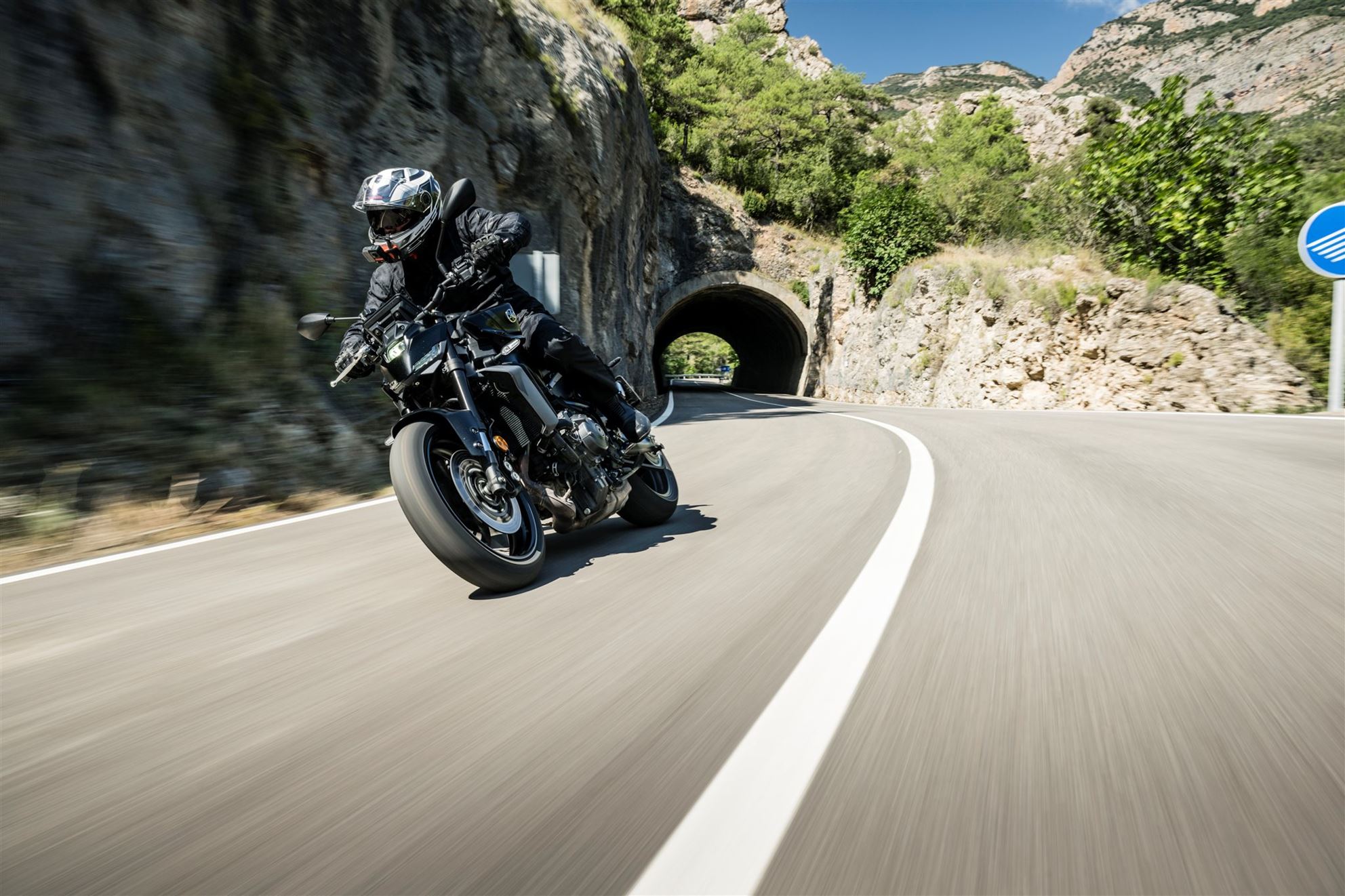
Sporty riding with even faster gear shifts - the MT mode is a real blast
Conclusion Yamaha Y-AMT
Yamaha's approach to introducing the new generation of automated transmissions is both unique and exciting. The fully autonomous "AT" mode eliminates the bothersome aspects of manual shifting, such as constant clutching in traffic or repeated starts in the city. In "MT" mode, however, Yamaha promises even more riding pleasure and sportiness without feeling like you're riding with an automatic transmission. The fact that this technology works so well in the MT-09 demonstrates that automated shifting can indeed be compatible with dynamism and riding enjoyment.
Raymond Schoute, a test rider at Yamaha, even confirmed in a brief interview that he could well imagine this technology being seen more frequently in the future among beginners participating in track days with their MT-09.
To enable particularly smooth shifts between first and second gear, neutral is now positioned first, followed by gears 1 through 6. With the Y-AMT technology, it is no longer possible to rev the engine in neutral, nor can you pull the clutch while riding to, for example, "glide" before a corner or slowly roll up to a red light. Although the Y-AMT technology requires some getting used to, the MT-09 neither loses its character nor feels alien compared to traditional motorcycling.
For an additional 500 EUR, you get the Y-AMT technology in the MT-09 (it is likely that other models will also be equipped with it) as well as the Keyless Ride as standard.
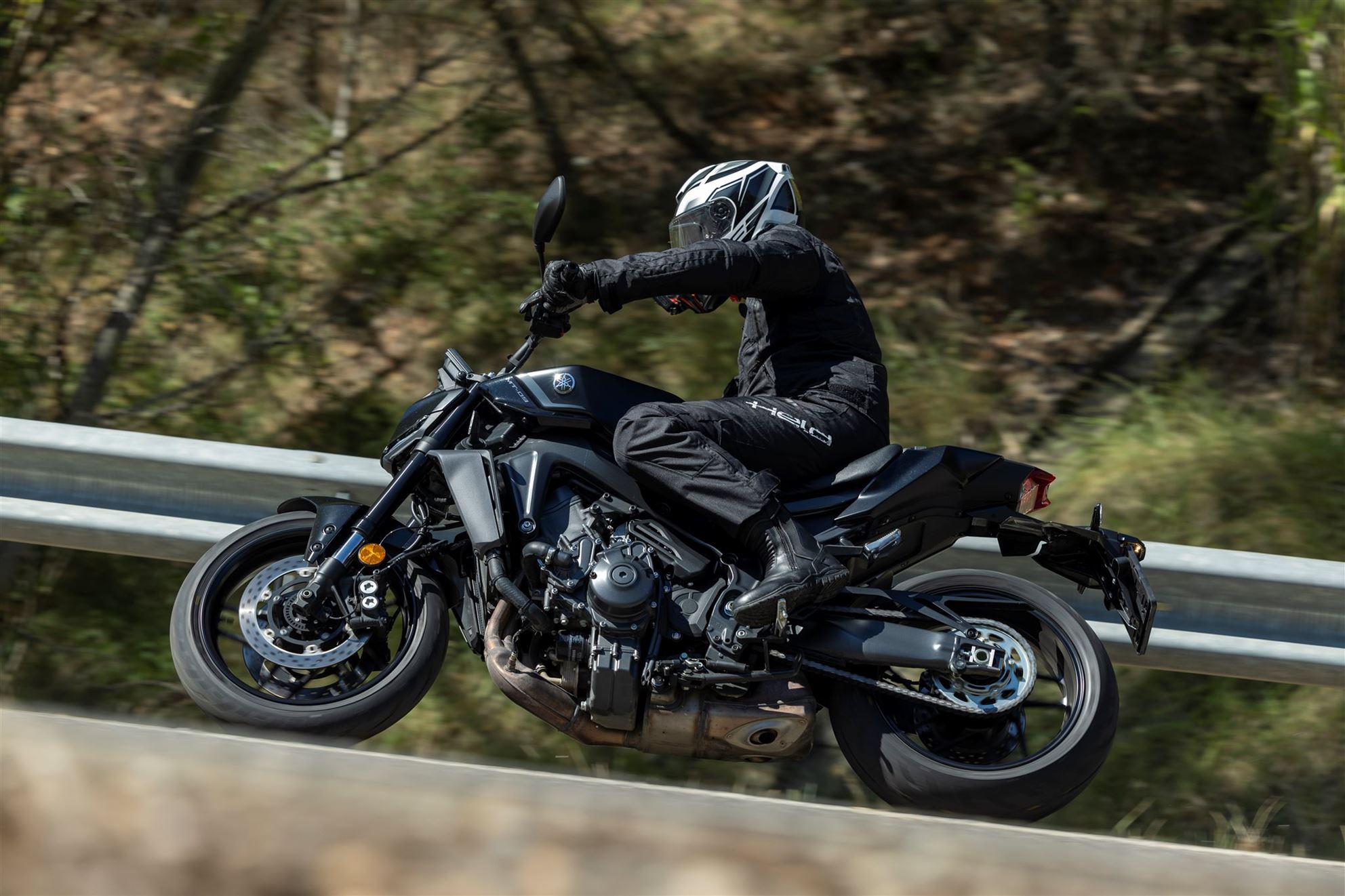
The Y-AMT technology promises more comfort, more riding pleasure, and more safety.
- How much does a Yamaha MT-09 Y-AMT cost?
- Here you will find an overview of the price level of new and used motorbikes!
&width=60&height=60&bgcolor=rgba_39_42_44_0&mode=crop)
Yamaha MT-09 Y-AMT 2024 - Experiences and Expert Review
FunkyFrankee
Yamaha's new automated transmission in the MT-09 offers an interesting alternative to manual shifting. In "AT" mode, riding is made easier in urban traffic through automated clutching, while the "MT" mode preserves riding pleasure and sportiness. The neutral gear is now positioned first, followed by gears 1 to 6, allowing for smoother shifts. Although the Y-AMT technology requires some getting used to and has limitations, such as the inability to "glide" by pulling the clutch, the riding experience remains dynamic.
More from 1000PS Magazine
Yamaha's Automated Manual Transmission (Y-AMT) - Test Report Images
Source: 1000PS









































